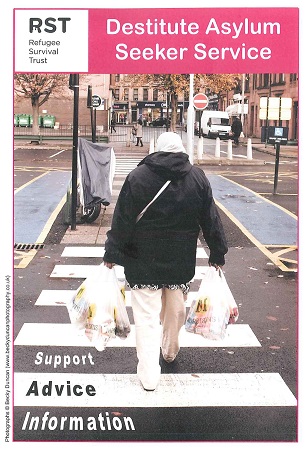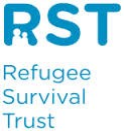Guest post by Katharine Weatherhead
Next month, it will have been four years since the publication of a report entitled Preventing Destitute Homelessness (June 2013). The report, commissioned by the Refugee Survival Trust and compiled by Community InfoSource, investigated the challenges posed by homelessness for asylum seekers in Scotland. What were its findings and are they still relevant today?
The report pulled together findings from a range of sources across Scotland and England. Asylum seekers shared their experiences of sleeping in night shelters and being hosted in someone’s house (pp. 23-26). Domestic abuse, lack of access to showers, and lack of privacy are some of the issues they faced. Migrant support organisations also expressed difficulties in addressing aspects of destitution, from accommodation and hosting to advice and subsistence (pp. 18-22). These organisations mentioned funding and coordination as areas of concern.
The report identified a need for improvement in tackling homelessness (p. 27), a problem that results from policies and administrative practices which compose the asylum system. In response, RST headed up a project called the Destitute Asylum Seeker Service (DASS) with the support of several partner organisations: Scottish Refugee Council, British Red Cross, University of Strathclyde Law Clinic, Glasgow Night Shelter, Fasgadh and Rehoboth Nissi Ministries.
Based in Glasgow, the DASS project uses a model of holistic support and offers a range of services to address the needs of refused asylum seekers. Its three core areas of activity are destitution advice, legal support, and accommodation. By April 2016, after only 9 months of operation, the DASS project had had more than 200 applicants for assistance. It then received funding from Foundation Scotland’s New Beginnings Fund and the Big Lottery Fund to extend and continue its work.
Today, the findings of the Preventing Destitute Homelessness report continue to be relevant as a reminder of the hardships faced by asylum seekers who are excluded from social safety nets. The ongoing work of the DASS project evidences that destitution is still a significant challenge for asylum seekers in Scotland. Projects which respond to homelessness can have a positive impact on people’s lives, as encapsulated in the words of a DASS beneficiary (see extract).
More information
For a summary of the Preventing Destitute Homelessness report, click here. For the full report, click here. For information on the DASS project and details on how to get in touch, see this short leaflet and the RST website.


